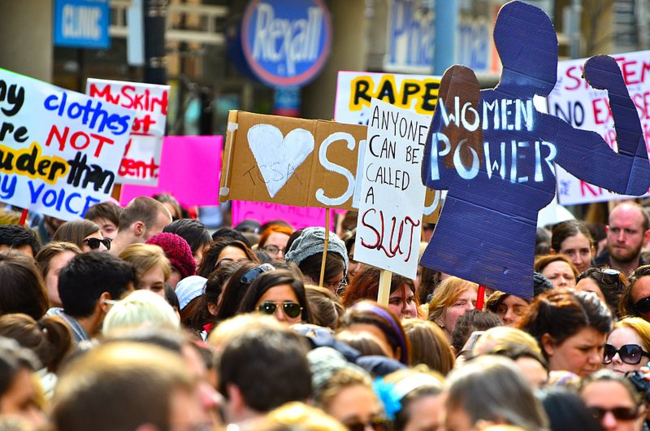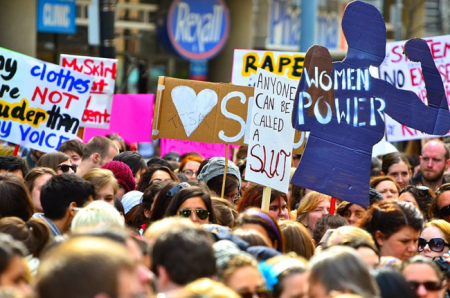Fifty countries treat sex work as a legitimate job, and it has been legalized with restrictions in eleven others. Nevertheless sex workers are still widely stigmatized, discriminated against, harassed, and, in those countries where prostitution is considered illegal, treated as criminals. This is especially true in the United States, which is one of the few industrialized nations that continues to criminalize prostitution. As Melinda Chateauvert reveals in her new book Sex Workers Unite: A History of the Movement from Stonewall to Slutwalk, these laws have put sex workers at risk.
Chateauvert agreed recently to talk with Beacon Broadside about Human Rights Day and how important it is that the international campaign for human rights include sex workers, who have always been key activists in the struggles for gay liberation, women’s rights, reproductive justice, labor organizing, prison abolition, and other human rights–related issues.
Why is it important that human rights advocates include sex workers in their efforts and activism?
“Prettying up,” “normalizing,” or “sanitizing” the poster children (or martyred adult victims) of any movement means that the policy solutions will never address the people who are most vulnerable to exploitation and abuse. It’s rather instructive, for example, how the mainstream of the immigrant rights’ movement places students, military veterans, and “hard-working” successful workers/business people at the forefront. (The same can be said about gay rights organizations too.) This makes them “worthy” and “deserving” of citizenship rights in the US. But what about immigrants who seek residency and asylum because they are transgender or gay or lesbian? Or who, once they arrive, find they cannot obtain “honest” work and turn to the sex industry to support themselves?
For the labor movement, organizing in the sex industry itself is certainly one focus for activism. But in truth, winning a living wage for workers everywhere would mean that a lot of workers could choose to leave the sex industry, especially those who moonlight to make ends meet while holding on to their “legitimate” day jobs.
Keep reading…






